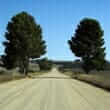Background
- Pinus radiata (Monterey pine), is a tree native to coastal California and Mexico. Native American tribes of the West Coast of North America used Monterey pine to expel parasites, as an antiseptic, diuretic, and skin reddener, for water filtration, and to treat bladder problems, colds, coughs, influenza, kidney problems, migraine headache, joint and muscle problems, sores, and tuberculosis. Currently, Monterey pine is used around the world for timber.
- High quality research supporting the use of Monterey pine for any medical condition is currently lacking. Enzogenol®, a commercially available dietary supplement that contains Monterey pine extract, has been shown in clinical trials to have antioxidant properties and to improve heart health and mental performance. While these findings are promising, additional research is needed.
References
- Burry JN. Environmental dermatitis: contact dermatitis from Pinus radiata. Med J Aust 1977;2(1):13-14.
View Abstract - Cornford CA, Fountain DW, Burr RG. IgE-binding proteins from pine (Pinus radiata D. Don) pollen: evidence for cross-reactivity with ryegrass (Lolium perenne). Int Arch Allergy Appl Immunol 1990;93(1):41-46.
View Abstract - Harris RM, German DF. The incidence of pine pollen reactivity in an allergic atopic population. Ann Allergy 1985;55(5):678-679.
View Abstract - Joseph JA, Shukitt-Hale B, Denisova NA, et al. Reversals of age-related declines in neuronal signal transduction, cognitive, and motor behavioral deficits with blueberry, spinach, or strawberry dietary supplementation. J Neurosci 1999;19(18):8114-8121.
View Abstract - Joseph JA, Shukitt-Hale B, Denisova NA, et al. Long-term dietary strawberry, spinach, or vitamin E supplementation retards the onset of age-related neuronal signal-transduction and cognitive behavioral deficits. J Neurosc 1998;18(19):8047-8055.
View Abstract - Keli SO, Hertog MG, Feskens EJ, et al. Dietary flavonoids, antioxidant vitamins, and incidence of stroke: the Zutphen study. Arch Intern Med 1996;156(6):637-642.
View Abstract - Knekt P, Jarvinen R, Reunanen A, et al. Flavonoid intake and coronary mortality in Finland: a cohort study. BMJ 1996;312(7029):478-481.
View Abstract - Loureiro G, Rabaca MA, Blanco B, et al. Aeroallergens sensitization in an allergic paediatric population of Cova da Beira, Portugal. Allergol Immunopathol (Madr) 2005;33(4):192-198.
View Abstract - Marcos C, Rodriguez FJ, Luna I, et al. I pollen aerobiology and clinical sensitization in northwest Spain. Ann Allergy Asthma Immunol 2001;87(1):39-42.
View Abstract - Pipingas A, Silberstein RB, Vitetta L, et al. Improved cognitive performance after dietary supplementation with a Pinus radiata bark extract formulation. Phytother Res 2008;22(9):1168-1174.
View Abstract - Senthilmohan ST, Zhang Z, Stanley RA. Effects of flavonoid extract Enzogenol® with vitamin C on protein oxidation and DNA damage in older human subjects. Nutrition Research 2003;23(9):1199-1210.
- Shand B, Strey C, Scott R, et al. Pilot study on the clinical effects of dietary supplementation with Enzogenol, a flavonoid extract of pine bark and vitamin C. Phytother Res 2003;17(5):490-494.
View Abstract - Wood JE, Senthilmohal ST, Peskin AV. Antioxidant activity of procyanidin-containing plant extracts at different pHs. Food Chemistry 2002;77(2):155-161.
- Youdim KA, Spencer JP, Schroeter H, et al. Dietary flavonoids as potential neuroprotectants. Biol Chem 2002;383(3-4):503-519.
View Abstract - Young JM, Shand BI, McGregor PM, et al. Comparative effects of enzogenol and vitamin C supplementation versus vitamin C alone on endothelial function and biochemical markers of oxidative stress and inflammation in chronic smokers. Free Radic Res 2006;40(1):85-94.
View Abstract







